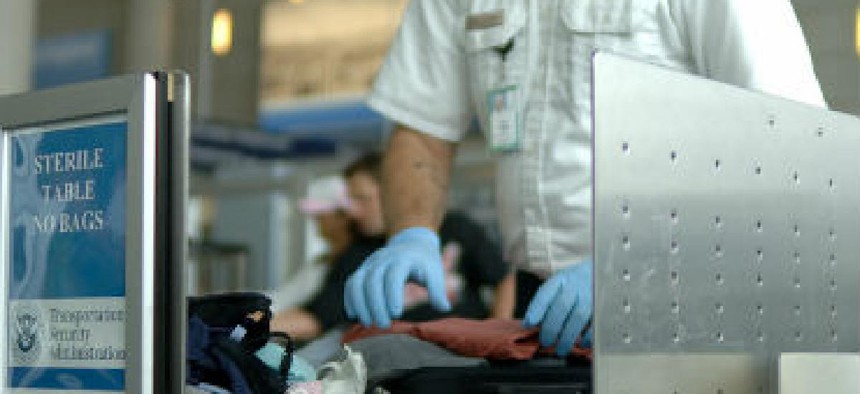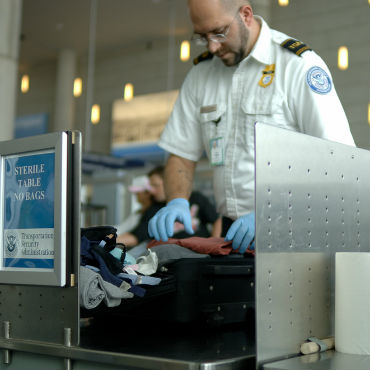Airport innovations, MonsterMind and a $300M Air Force contract

News and notes from around the federal IT community.

Customs at airports? There's an app for that.
Customs and Border Protection's latest IT-based effort to shorten lines at U.S. airports is set to go live in Atlanta.
Mobile Passport Control (MPC), the agency’s first authorized mobile app to expedite entry, will allow eligible travelers to submit passport information and customs declaration forms via a smartphone or tablet prior to CBP inspection.
Eligible travelers arriving at Hartsfield-Jackson Atlanta International Airport will be able to use the app beginning Aug. 13. The agency expects to expand the MPC to more airports later this year and to Android smartphone users in the future. IPhone and iPad users can download the app for free from Apple’s App Store.
In July, Boston's Logan International Airport introduced Automated Passport Control kiosks to help speed travelers through the arrivals process. The kiosks, now in 20 U.S. airports, allow U.S. citizens and Canadian visitors to enter their passport and identification information prior to inspection by a CBP officer. The automated process includes a passport scan, a photo capture, a touch-screen question-and-answer session and an electronic presentation of documents to CBP officers.
CPB said the MPC app -- much like Automated Passport Control -- requires no pre-approval, is free to use and does not collect any new information on travelers.
Snowden warns of MonsterMind
A new Wired profile of Edward Snowden describes a National Security Agency "cyberwarfare program" called MonsterMind. The program reportedly would automate the process of hunting for the beginnings of a foreign cyberattack.... [then] automatically block it from entering the country." Such automated monitoring and defense are quite common, but MonsterMind would also "automatically fire back, with no human involvement."
Snowden warned that the automatic response could target innocent third countries through which cyberattacks are often routed. And Wired reported that he "views MonsterMind as the ultimate threat to privacy because, in order for the system to work, the NSA first would have to secretly get access to virtually all private communications coming in from overseas to people in the US."
An NSA spokesperson declined Wired's requests for comment on MonsterMind. The full article can be found here.
TSA seeks ideas for better bag-handling
The Transportation Security Administration has again turned to crowdsourcing to develop new ways to speed up the wait and increase the efficiencies in airport security lines using data association.
In an Aug. 8 post on the Innocentive Challenge crowdsourcing site, TSA said it is looking for ideas on how to associate passengers' security screening designation, like its pre-screened Pre Check program participants, with their checked luggage in the agency's Checked Baggage Inspection System (CBIS) environment. TSA is offering a $15,000 award to the best idea, which is said should allow bags to be routed for varying and appropriate levels of screening according to their associated screening designation.
The agency has been busy on the Innocentive site since it began a concerted effort to use more open sources in May, an agency spokesman told FCW in an Aug. 13 email. In July, TSA posted a challenge asking for ideas for the Next Generation Checkpoint Queue Design Model to apply a scientific and simulation modeling approach to improve the passenger-screening process.
Northrop Grumman lands $300 million Air Force contract
Northrop Grumman was awarded a $300 million Systems Engineering Management and Sustainment III contract to continue its work with U.S. Air Force Weather toward the development of AFW’s environmental information systems.
Under the SEMS III contract, Northrop Grumman will supply systems engineering, management and sustainment for AFW initiatives -- including on-demand information for warfighters, DOD space operations and communications, weather modeling, and analysis of worldwide environmental conditions.
Northrop Grumman has been the primary contractor for SEMS since 2002.
NEXT STORY: The story behind DOT's cyber makeover


